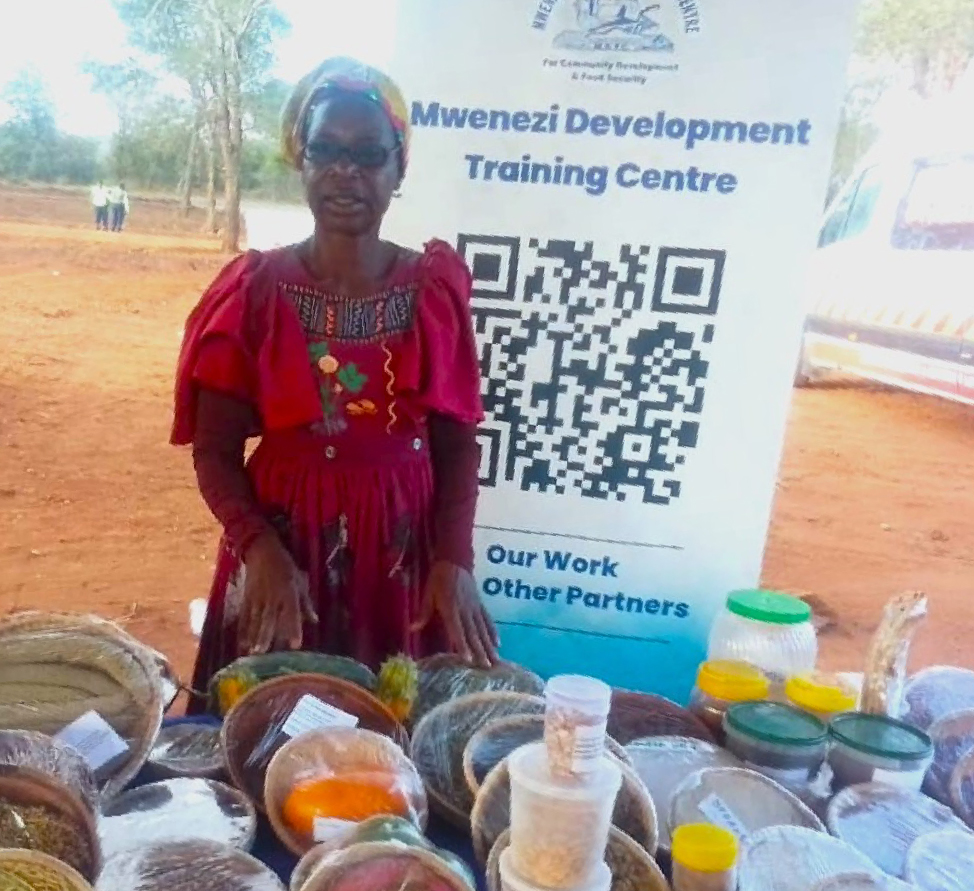
In the heart of Toringa village, where the earth whispers ancient secrets, Precious Matsheza moves between rows of sorghum and finger millet with the quiet confidence of someone who has found her life’s purpose. At 57, her hands tell a story of transformation from struggling farmer to celebrated seed custodian.
Just five years ago, Precious viewed farming as a burdensome chore. Like many in her community, she relied on hybrid maize seeds and synthetic fertilizers, watching helplessly as her soil grew tired and yields diminished.
“Before I joined Mwenezi Development Training Centre (MDTC), I used to rely on growing hybrid seed varieties, especially maize,” she recalls.
“I used synthetic fertilizers on my soil, not knowing I was harming it. Farming was a necessity then, not a passion. I only saw the negatives: declining fertility, shrinking harvests,” she adds.
Then in 2018, a revelation came through MDTC. As Precious attended agroecology trainings, a new world unfolded before her, one where traditional grains like sorghum, pearl millet, traditional rice (mupunga), barnyard millet (svoboda), groundnuts, pumpkins, and cow peas weren’t relics of the past, but keys to a sustainable future. She learned the art of seed saving, the wisdom of crop rotation, and the profound connection between healthy soil and thriving communities.
Something awakened in her.
“I am now practicing agroecology full time my passion for farming has been renewed,” Precious says.
“Through agroecology I learned about growing traditional seed varieties and seed saving, which has become my area of specialty. I no longer rely on external inputs. Now, I have the confidence to explore various seeds and improve my farming techniques, completely changing my approach to agriculture.”
But Precious’s story didn’t end at the boundaries of her own fields. Word spread through Mwenezi district about the woman bringing back the old ways with remarkable results. Soon, farmers began arriving at her doorstep, eager to learn. What began as personal transformation blossomed into a movement.
Today, her farm serves as a living classroom where the Farmer Field School approach comes to life.
“Precious is an exemplary lead farmer in our community,” says Chris Lambika (52), MDTC’s Programmes Manager.
“She has transformed her farming plots into learning centres where other farmers come to tap into various new farming technologies.”
Her influence now ripples across seed fairs, national food festivals, and training workshops.
“Because of my specialty in seed saving and growing traditional grain varieties, I’ve been invited to participate in many farmer initiatives,” Precious shares.
“These experiences show me the importance of our traditional grains and renew my purpose in farming.” she adds.
Fellow farmer Simbisai Machava (61) witnesses the change daily.
“Precious has demonstrated to many in our community that traditional grains are the true pathway to self-sufficiency and seed sovereignty. She constantly shares her expertise and empowers others.” she says.
Yet for Precious, the most profound change might be the knowledge she’s passing to the next generation.
“My life has been transformed,” she reflects.
“We’re teaching our children about our small grains, the healthy benefits of traditional dishes, agroecology skills, the value of healthy soil, keeping livestock, and the importance of planting trees.”
Precious Matsheza stands as living proof that the answers to our future lie in the wisdom of our past. From a farmer struggling with synthetic inputs to a guardian of biodiversity, her journey reminds us that sometimes, moving forward requires returning to our roots – one precious seed at a time.







